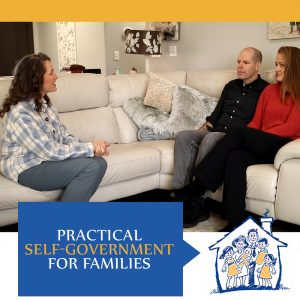Stopping Conflicts Before They Start
A friend of mine asked me what she could do for her teenage exchange student. This student was in the middle of a multiple, day-long teenage tantrum. The mother had told her exchange student that she couldn’t attend a sleepover because the family doesn’t do sleepovers. The teenage exchange student, in turn, became very emotional and quite upset.
There are many layers to a story like this. We could examine whether or not the child fully understood why the family had this rule. Or, we could determine if she was accustomed to getting “No” answers from her parents. Likewise, we could find out if the teen even had the skills necessary to be fully understood and happy in a situation like this.
This mother sincerely wanted to have a good experience with her exchange student, but she didn’t want to change the established family rules just to please this girl and avoid disappointing her. The mother was right. When a family has a standard to follow, they need to honor it — even if someone in the family doesn’t like the standard.
These parents were able to be calm and loving with their exchange student while holding to their family standard, even though she was emotional and didn’t want to accept the standard.
Clearly Define Standards for Future Success
Deliberate parents make family standards for their family to follow. A clearly defined family standard eliminates many conflicts before they even start. If children know the family standard says they can’t get a tattoo, date until a specific age, or have sleepovers, as well as they have to reach a certain level of maturity before receiving a personal digital device, then the children will not feel a need to wear down parents with nagging and begging for these kinds of issues.
To a child, a “No” answer seems like an opinion. So, when a parent says “No,” the child then tries to manipulate emotionally or logically to get the opinion to change. But, when a family has a document with their standards on it, then children know that no amount of nagging, whining or pouting will help them get their way. The family standard is bigger than an opinion. It’s a statement, or pledge, the family makes together. It even helps strengthen the family’s identity. They know they’re a family that doesn’t have sleepovers, doesn’t smoke, etc. Everyone needs to be standing on the same ground.
So often parents and children aren’t on the same page because parents don’t take the time to help their children see the world through their eyes by making deliberate statements, like those contained in a family standard. It would also help if society in general would still honor a parent’s right to make and teach standards to their children. There are so many mixed messages in today’s world. These messages can cause children to lose respect for their parents and instead choose what society endorses as good or enjoyable.
My friend told me the parents of her exchange student taught their daughter that she needed to respect the authority of her temporary parents in the United States, and ultimately that’s what she did. She even apologized for her bad behavior, once she finally became calm.
Some Small Skills Make a Big Difference
In this story, there was a language barrier that made communication difficult. That’s always a hurdle to jump over when a family takes in an exchange student. Besides being able to understand the English language it would have been helpful if the exchange student knew a few skills for being understood in a relationship.
Because the exchange student wasn’t their own child, they weren’t sure how far their parental authority should actually go. They wanted to have a smooth, enjoyable experience and didn’t want to step on the toes of their child’s biological parents. In the end, my friend confided in me that she wished she would have deliberately taught their exchange student some of the basic skills their family knows, instead of just leading by example and hoping the teen would pick up the skills.
If their exchange student had learned the 4 steps for how to accept a “No” answer and the 8 steps for the skill called “disagreeing appropriately,” then they wouldn’t have ended up having the conflict over a “No” answer for attending a sleepover party. Their temporary daughter could have calmly accepted the “No” answer from her parents or discussed the topic further by disagreeing appropriately. If these steps had been followed, then no emotional tantrum would have occurred.
To Keep Things Simple Plan Ahead
No matter where I travel, I meet people who think the best kinds of relationships are those where everyone is free to emotionally dump on each other whenever necessary. Some parents try to explain to me that this is more organic. They believe teaching children how to accept “No” answers and disagree appropriately is too artificial.
I suppose these same parents wouldn’t think that driver’s education or medical school are artificial. A driver needs to know how to communicate with the other drivers on the road and how to use driving tools. A doctor needs to know how to communicate with her patients and colleagues and how to use the necessary medical tools.
Why then do so many parents not see that pre-planning is also required for good relationships? To keep things simple, predictable and comfortable for all the people in a relationship, a wise person plans ahead.
When parents deliberately plan their standards and teach their children skills for good communication and proper respect, then their lives become simple. They avoid the emotionally complexity of tantrums and the need to constantly repair damaged relationships. Doing these two things enables families to stop many conflicts before they even start.
Nicholeen makes setting up a self-governed family environment easier with these books and courses. Visit: https://teachingselfgovernment.com/store
Index
- Accepting No Answers and Criticism, Authority, Begging, Behaviors, Calm, Changing Hearts, Character Building, Common Vision Creation, Connecting (Looking in the eyes), Control, Correcting, Culture, Disagreeing Appropriately, Dropping the subject, Encouragement, Expectations, Family Culture, Family Standard, Following Instructions, Mission Statement, Mutual Respect, No Answers, Power of Calm, Power Struggling, Pre-Teach, Problem Solving, Relationships, Respect, Roles, Seek to Understand, Skills, Structure, Tone






